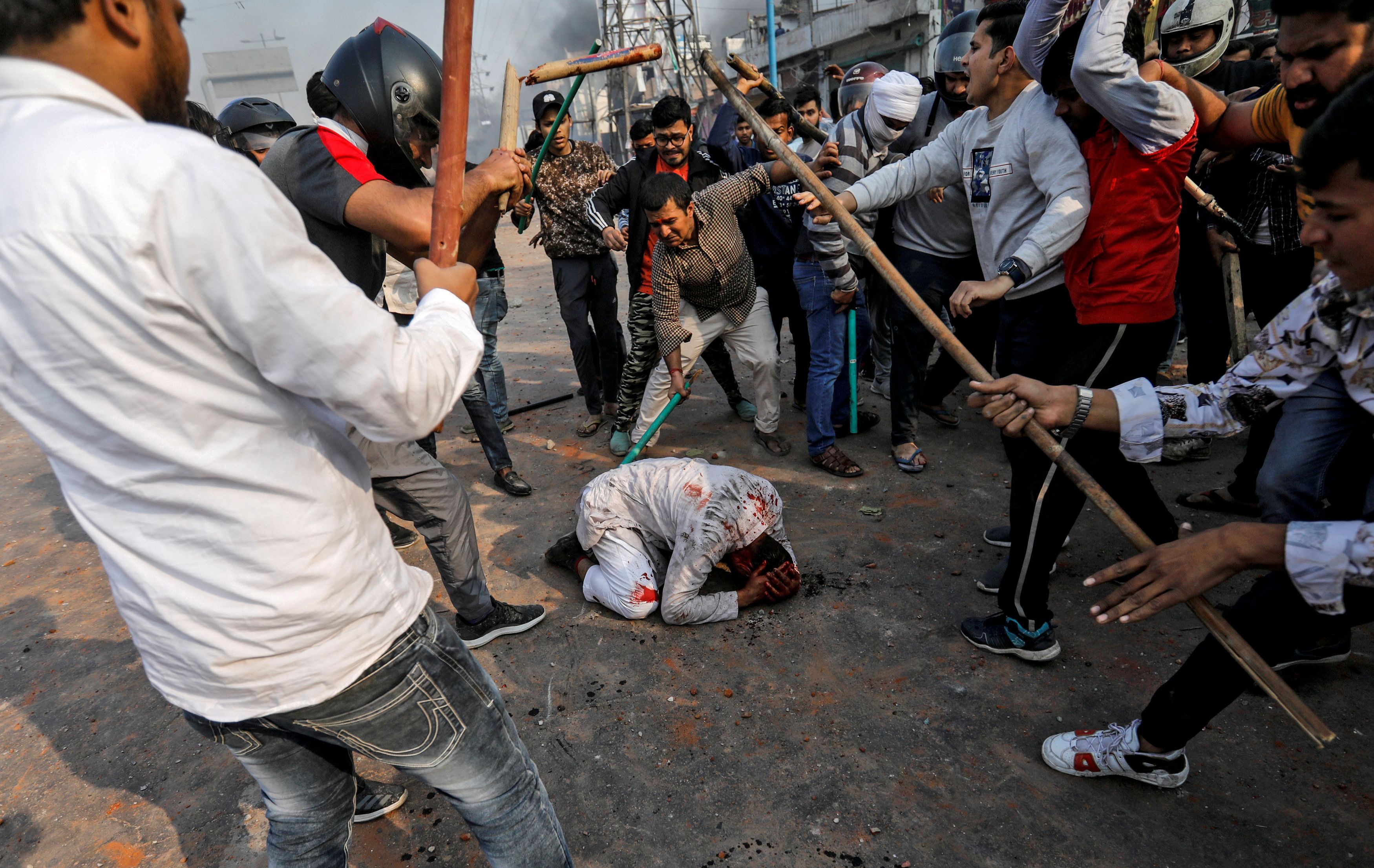February 27, 2020
Earlier this week, India saw some of the worst sectarian violence in decades as Hindus and Muslims clashed in the streets of the capital, Delhi, killing dozens of people. Why?
The immediate cause of the unrest was a confrontation between critics and defenders of a new citizenship law that offers refuge in India to ethnic minorities from neighboring countries, but excludes Muslims from those protections. Opponents of the measure say that by basing people's rights on their religious identity, the law violates guarantees of secularism enshrined in India's constitution. Street demonstrations about the law have roiled many cities for months. But when a group of women protesting in a Delhi neighborhood earlier this week refused to clear the streets, a fiery local Hindu nationalist politician called on his supporters to do the job themselves. Almost immediately, the streets exploded in violence.
The historical context: India was born in a crucible of communal violence. When India declared its independence in 1947, ending nearly a century of British rule of the sub-continent, Muslim-majority Pakistan and Hindu-majority India became separate countries. Large numbers of people found themselves on the wrong side of a newly drawn border, and the ensuing sectarian violence and expulsions displaced 15 million people and left as many as 2 million dead. Against this backdrop, independent India was founded as a secular democracy, the better to accommodate, however messily, the rich patchwork of ethnic, linguistic, and religious identities held by its citizens.
The idea of a secular India has always been challenged by Hindu nationalists, who believe that the state should have a more explicitly Hindu character – the way that Israel (excluding the occupied territories) is a democracy which also identifies as a "Jewish state."
This fight over religious identity and secularism has come to a head in recent years. In the 2014 election, the BJP, a political party with roots in Hindu nationalist movements, swept to power. Narendra Modi, a lifelong politician who first joined one of those movements as a schoolboy, became Prime Minister.
Modi and his government have done many good things for India: they've streamlined taxes to make the sprawling economy more efficient; used new technology to massively expand poor and illiterate Indians' access to state benefits and bank accounts, and done hugely important basic things like installing millions of toilets in remote areas.
But his government and party have also pursued policies that appear to target India's 200 million-strong Muslim population. National citizenship registers are being revised in ways that threaten to exclude millions of Muslims who arrived as migrants from neighboring countries in the 1970s. Delhi has also revoked the special status long enjoyed by the state of Kashmir, the only Muslim-majority state in the country. And human rights groups, along with the UN, have accused the government of turning a blind eye to rising hate crimes against Muslims.
History rhymes: Twenty years ago, long-simmering tensions between Muslims and Hindus over holy sites in the northwestern state of Gujarat exploded into violence that left more than a thousand people dead, most of them Muslims. Hate crimes against Muslim women and children were particularly grotesque.
The local government, controlled at the time by Hindu nationalists, was accused of allowing or even tacitly encouraging the violence. And though a supreme court investigation later disputed this claim, the governor at the time was banned from the US over the issue. That governor's name was Narendra Modi.
More For You
- YouTube
In this episode of "ask ian," Ian Bremmer breaks down the growing rift between the US and Canada, calling it “permanent damage” to one of the world’s closest alliances.
Most Popular
Two Iranian motorcyclists stop in front of the burned East Tehran General Directorate of Tax Affairs headquarters in Tehran, Iran, on January 21, 2026.
Photo by Morteza Nikoubazl/NurPhoto
30,000: The estimated death toll in Iran during the protests at the start of the year, per local health officials, underscoring the scale of the Islamic Republic’s crackdown on its own citizens.
The World Health Organization (WHO) headquarters is seen in Geneva, Switzerland, January 28, 2025.
REUTERS/Denis Balibouse
Seventy-eight years after helping found the World Health Organization (WHO), the United States has formally withdrawn from the agency, following through on a pledge President Donald Trump made on his first day back in office.
© 2025 GZERO Media. All Rights Reserved | A Eurasia Group media company.
